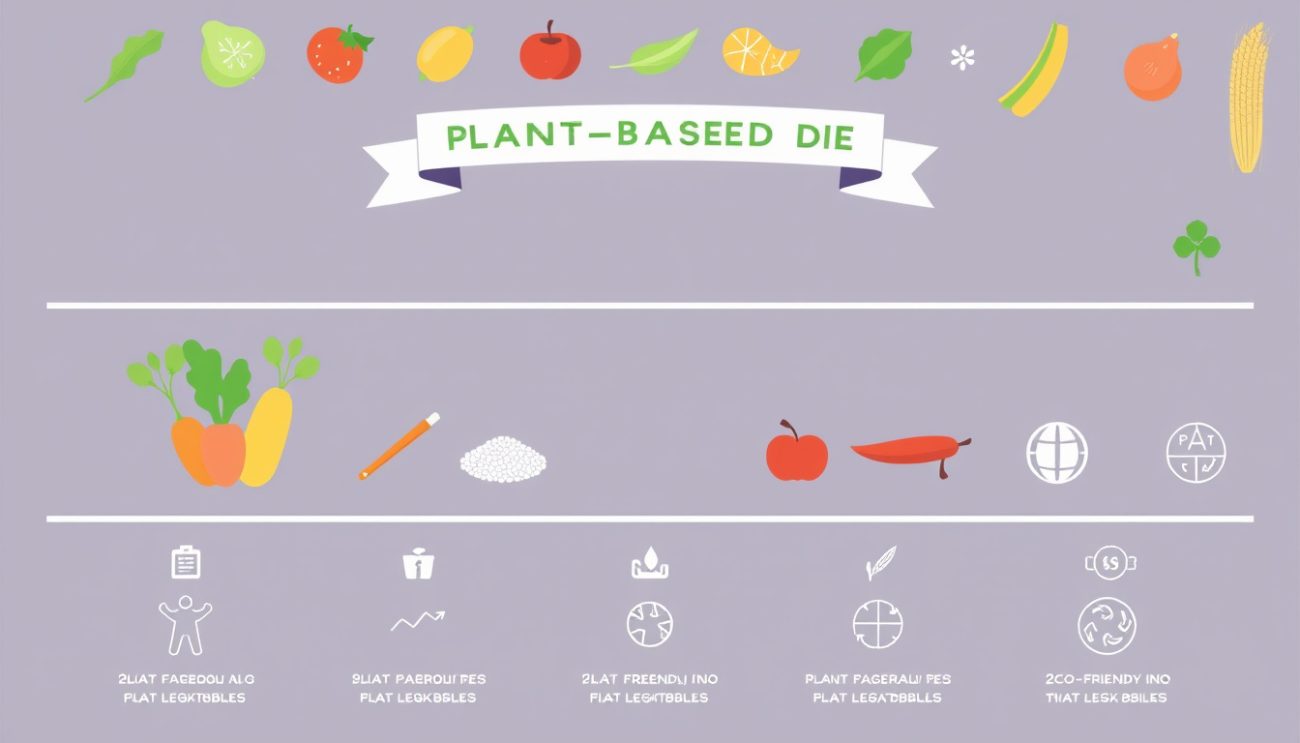Unlocking the Power of Plant-Based Diets: A Comprehensive Guide to Healthier Living and Sustainable Eating
Plant-based diets have gained tremendous popularity for their numerous health benefits and positive environmental impact. This comprehensive guide explores what plant-based diets entail, the science-backed health advantages, practical tips for adoption, and how such diets

Plant-based diets have gained tremendous popularity for their numerous health benefits and positive environmental impact. This comprehensive guide explores what plant-based diets entail, the science-backed health advantages, practical tips for adoption, and how such diets contribute to sustainable living.
What Is a Plant-Based Diet?
A plant-based diet focuses primarily on foods derived from plants, including fruits, vegetables, whole grains, legumes, nuts, seeds, and healthy oils. It differs from strictly vegetarian or vegan diets in that it allows flexibility to include small or moderate amounts of animal products like dairy, eggs, fish, or poultry, depending on personal preference.
Prominent examples of plant-based eating patterns include:
- Flexitarian or Semi-Vegetarian: Mostly plant foods with occasional meat or fish.
- Pescatarian: Plant foods plus fish and seafood, excluding other meats.
- Vegetarian (Lacto-ovo): Includes eggs and dairy but no meat or fish.
- Vegan: Exclusively plant foods, no animal-derived products.
This emphasis on plant-forward eating entails proportionally choosing more foods from plant sources rather than eliminating animal products entirely.
Health Benefits Backed by Research
Cardiovascular Health
Research consistently shows plant-based diets reduce the risk of heart disease. For instance, Mediterranean and vegetarian diets—both predominantly plant-based—are linked with:
- Lower blood pressure
- Reduced incidence of coronary heart disease
- Improved cholesterol profiles
The Heart Foundation highlights that increasing consumption of fruits, vegetables, whole grains, legumes, nuts, and seeds supports heart health. Meanwhile, limiting red and processed meats can decrease cardiovascular risk.
Metabolic Health and Diabetes
Plant-rich diets are associated with a lower risk of metabolic syndrome and type 2 diabetes. Studies indicate plant-based eating improves insulin sensitivity, blood sugar control, and can aid in weight management. The American College of Lifestyle Medicine notes that whole-food, minimally processed plant diets may contribute to diabetes remission.
Cancer Prevention
Evidence suggests plant-based diets reduce the incidence of certain cancers, particularly colorectal and prostate cancers. These diets provide higher dietary fiber and phytonutrients, which contribute to anti-inflammatory and antioxidant effects, potentially lowering cancer risk.
Weight Management
Vegetarian and vegan diets generally lead to lower calorie intake and healthier body weight. Reviews show sustained plant-based eating can reduce body weight by a few kilograms, supporting obesity prevention and management.
Gut Health
Preliminary studies indicate that plant-based diets promote a beneficial gut microbiome profile, improving digestion and potentially influencing immune function.
Nutrient Considerations
Plant-based diets supply essential macronutrients and micronutrients when well-planned, typically offering higher fiber and lower saturated fat. However, individuals—especially vegans—should monitor vitamin B12 intake, as it is absent in unfortified plant foods. Supplementation or consumption of fortified products is advised to avoid deficiencies.

Flexibility in Plant-Based Eating
Not all plant-based foods are inherently healthy. Highly processed plant-based products, such as meat substitutes and snacks, may contain excessive salt, sugar, or unhealthy fats. Choosing whole, minimally processed foods ensures maximum health benefits.
The Heart Foundation recommends a heart-healthy eating pattern emphasizing:
- Plenty of vegetables and fruits
- Whole grains as staple carbohydrates
- Healthy fats from nuts, seeds, avocados, and olive oil
- Plant proteins from legumes, nuts, and seeds
- Moderate amounts of fish, lean poultry, eggs, and dairy if included
- Limiting intake of red and processed meats
Tips to Transition to a Plant-Based Diet
-
Fill Half Your Plate with Vegetables
Make vegetables the star of your meals, enjoying a rainbow of colors and diverse varieties. -
Reframe Meat Consumption
Use smaller portions of meat as a complement rather than a centerpiece. -
Include Whole Grains
Opt for oats, quinoa, barley, and other whole grains daily. -
Incorporate Plant Proteins
Beans, lentils, tofu, nuts, and seeds are excellent protein sources. -
Cook Plant-Based Meals Regularly
Try making vegetarian or vegan meals at least once a week to build familiarity. -
Snack Smart
Choose vegetable sticks with hummus or fresh fruits instead of processed snacks. -
Try Plant-Based Milks
Select fortified, unsweetened options like soy, almond, or oat milk. -
Experiment with Salads and Soups
These are easy ways to increase intake of plant-based foods.
Environmental Impact and Sustainability
Plant-based diets are also recognized for their sustainability benefits. Reducing animal product consumption decreases greenhouse gas emissions, conserves water, and reduces land use. According to experts, shifting toward plant-forward diets is a practical individual action to help combat climate change.
Conclusion
Adopting a plant-based diet offers a flexible, nutrient-rich approach to healthier living while supporting environmental sustainability. By prioritizing whole, minimally processed plant foods and balancing with optional small amounts of animal products, individuals can enjoy a variety of delicious meals that nurture both body and planet.
By incorporating plant-based principles into your daily routine, you unlock the powerful potential for improved health outcomes and a positive environmental footprint—making it a compelling choice for mindful, sustainable eating.



